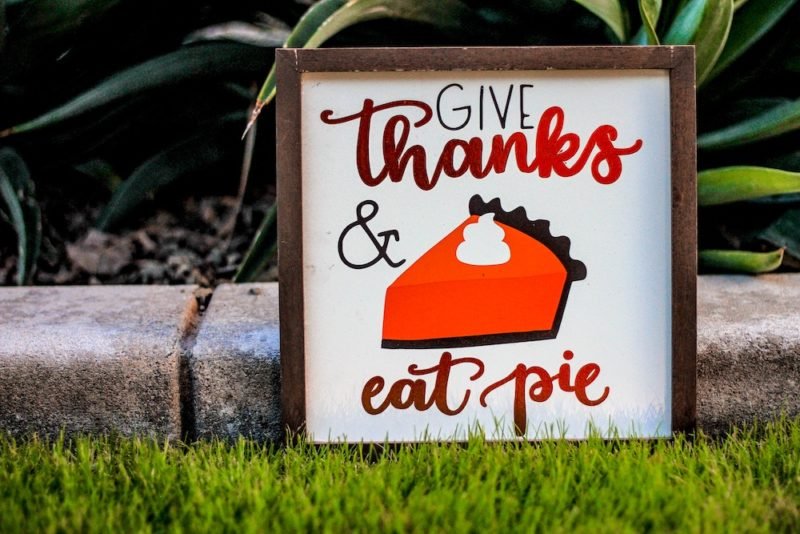
As we approach the holiday season, I want to give a shout out to a not-so-little thing called mindfulness. I know you’ve heard of it (on this blog, if nowhere else), and odds are you’ve tried to practice it, if only just a little. Maybe you’ve tried mindfulness in the context of mindful eating, maybe you’ve meditated. Today, I want to talk about how mindfulness can make us happier, which is ALWAYS a good thing, but feels especially timely right now.
A few weekends ago, I was listening to NPR, and heard an interview with psychologist Rick Hanson, author of books such as “Buddha’s Brain,” “Just One Thing,” “Hardwiring Happiness” and “Resilient.” His general focus is on how our thoughts and feelings can rewire our brain, for better or for worse.
Overcoming our negativity bias
The focus of the NPR interview was our brain’s negativity bias, or the annoying fact that our brains latch on to the negative things in life far more readily than the good things in life. This was of course a good thing in the early days of human evolution, when remembering the place you nearly stumbled upon a sabertooth tiger was far more important than remembering how pretty that sunrise was a few days ago. But in today’s world, with its countless stressors and annoyances, big and small, our negativity bias can make it hard to feel happy.
Hanson said we can compensate for our negativity bias, but it does mean working harder—or more intentionally—to make positive, pleasurable moments register and sink in. That’s where mindfulness comes in handy. It helps us notice and savor even the small moments of pleasure that present themselves, no matter how stressful or chaotic our day might me otherwise.
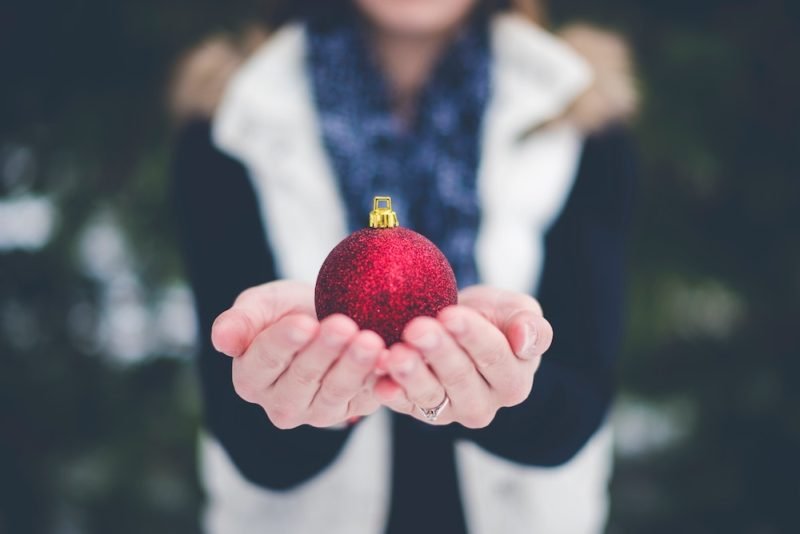
How to capture happiness, rather than chase it
He said it’s easy to despair that whatever pleasure and happiness we experience, it’s fleeting. On one level, that’s true. Think of some of the happiness moments of your life. These moments are now over. They’re gone. When we are grasping, trying to hold on to these moments and make them last, that’s a recipe for unhappiness, because those moments will never last. They are ephemeral, transitory, short lived. That can leave us regretting the passing of pleasurable moments past, and worrying about when we will next experience those feelings again. In other words, we’re living in the past and the future, but forgetting about the present moment. We are not mindful.
I feel very fortunate to have visited Paris five times, after decades of dreaming of traveling there. My first trip was very different from my fifth trip. To be fair, I’ve learned there is some comfort in revisiting a place, as you start to know it and can settle in a bit, rather than every single thing being unfamiliar. However, on my first trip I was definitely grasping, eager to se every single thing because I didn’t know if or when I would be back. I had overpacked our itinerary, and spent more time looking through a camera lens than through my own eyes. It was an exciting trip, but my pleasure was blunted by the feeling that I didn’t want it to end.
Contrast that with my most recent trip, 18 months ago. We revisited our favorite museums (the Louvre, Centre Pompidou, Rodin, Eugene Delacroix), but we allowed plenty of time to just wander. We took pleasure in roaming the grocery aisles at Monoprix, wandering the quais (docks) along the Seine, spending a cold and snowy morning sitting in a quiet upstairs room at Shakespeare and Co with the resident cat.
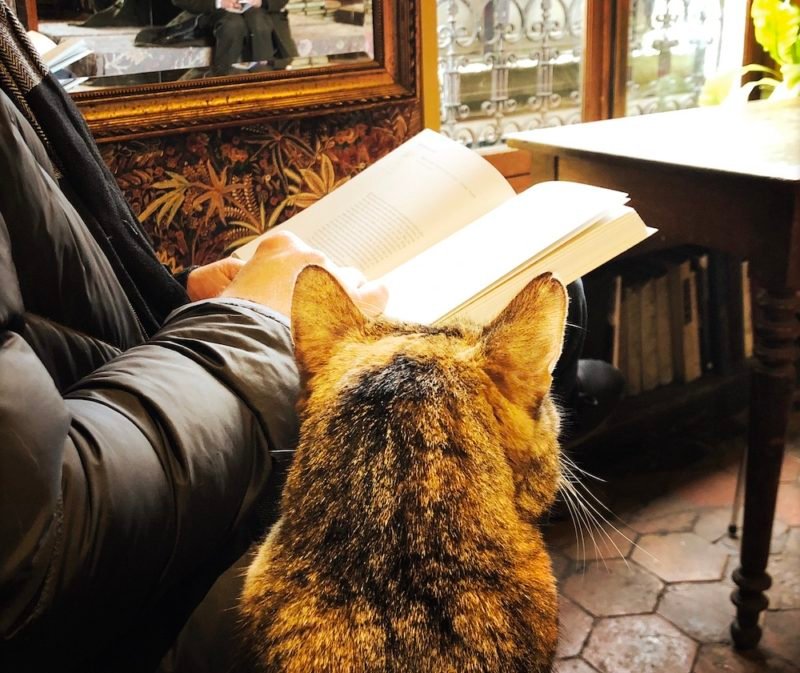
The power of noticing
I absorbed the sights, the sounds, the textures of the city, and today I’m able to call them up and feel like I’m there, experiencing Paris’s beauty all over again. Those moments have passed, as moments do, but the pleasure and the happiness remains.
Now, it might seem that it’s awfully easy to do that with (hello!) Paris, but I’ve employed similar tactics in more mundane circumstances. For example, I used to somewhat dread my commute home when I was working in downtown Seattle. I was super fortunate that I didn’t have to navigate commute traffic behind the wheel of a car, but the energy I felt from the people and cars around me as I walked to the light rail station and jockeyed for a seat on the train was not the same energy I felt in the morning. People were tired, stressed, and just wanted to get home.
At some point, I started playing the game of noticing beauty. It might be the color of pedestrian’s scarf, a beautiful blue sky, a happy baby in a stroller, the way a colorful store sign peeked through the branches of a street tree. Pleasure is there, we just have to be mindful of it. This mindset also helped me find pleasure and happiness in my recent trip to Ecuador, in spite of the stress and uncertainty that was also happening.
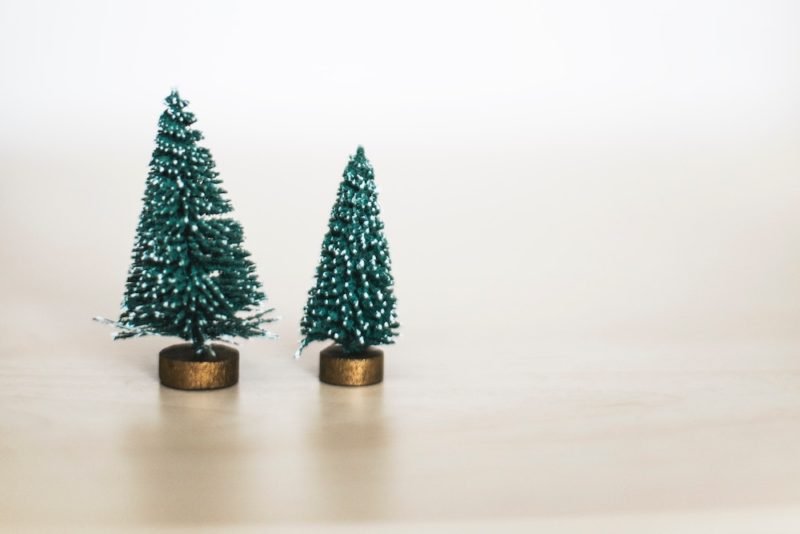
Finding joy in the season
So what does this have to do with the holidays? Plenty! For some of us, the holidays are full of pleasures, from the food to the family to favorite activities. However, if our minds fixate on the fact that those pleasures end, we can end up unhappy. For others, the holidays are a mix of uncomfortable family interactions, food guilt, and shopping stress. While there’s a LOT to unpack there, mindfulness can definitely help.
If you find yourself in a situation that is far from ideal—crowded mall, bumper-to-bumper traffic, bickering relatives, look for something, anything, of beauty, either in that moment or between those moments. Acknowledge the bad (“Yes, this is happening and it doesn’t feel good.”) but allow yourself to soak up the good, even if it’s just tiny moments of pleasure and joy.
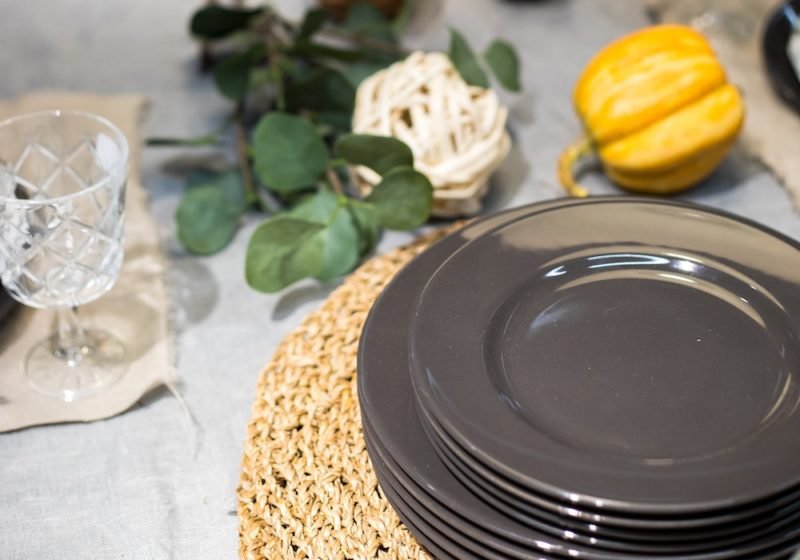
Increasing pleasure with mindful eating
Now about the food guilt part. I am of the mind that guilt has no place in eating, unless you stole the food. That said, feeling guilty about eating isn’t a habit that we unravel overnight. If you struggle with food guilt, this year I encourage you to approach the holidays mindfully. Think about what holiday foods you truly enjoy, and which you don’t really care about. Also, think about how you want to feel after a meal-–pleasantly satisfied, or full enough to fall into a food coma?
Savor the pleasure of the meal as you are eating it, but be willing to let that pleasure come to a close (i.e., be cautious of continuing to eat and eat once you notice you are approaching fullness simply because the food is delicious). There will be other holiday meals to be had, and no matter how tasty the food is in the moment, its pleasure will dim if you feel uncomfortably full afterwards. Just some food for thought.
Disclaimer: All information provided here is of a general nature and is furnished only for educational purposes. This information is not to be taken as medical or other health advice pertaining to an individual’s specific health or medical condition. You agree that the use of this information is at your own risk.
Hi, I’m Carrie Dennett, MPH, RDN, a weight-inclusive registered dietitian, nutrition therapist and body image counselor. I offer compassionate, individualized care for adults of all ages, shapes, sizes and genders who want to break free from eating disorders, disordered eating or chronic dieting. If you need to learn how to manage IBS symptoms with food, or improve your nutrition and lifestyle habits to help manage a current health concern or simply support your overall health and well-being, I help people with that, too.
Need 1-on-1 help for your nutrition, eating, or body image concerns? Schedule a free 20-minute Discovery Call to talk about how I can help you and explore if we’re a good fit! I’m in-network with Regence BCBS, FirstChoice Health and Providence Health Plan, and can bill Blue Cross and/or Blue Shield insurances in many states. If I don’t take your insurance, I can help you seek reimbursement on your own. To learn more, explore my insurance and services areas page.
 Print This Post
Print This Post






